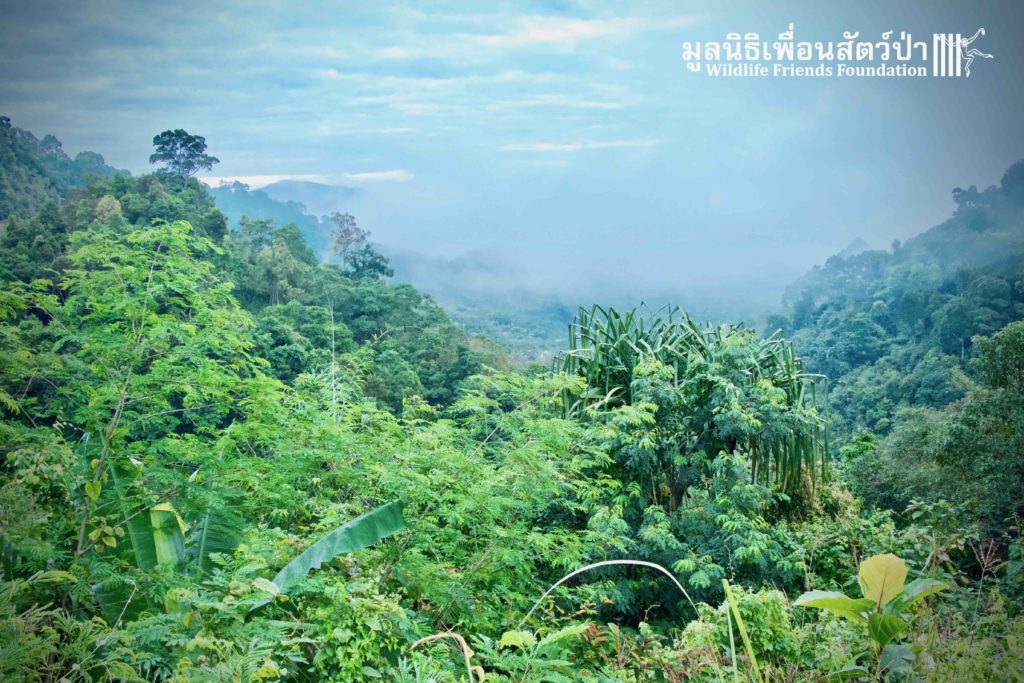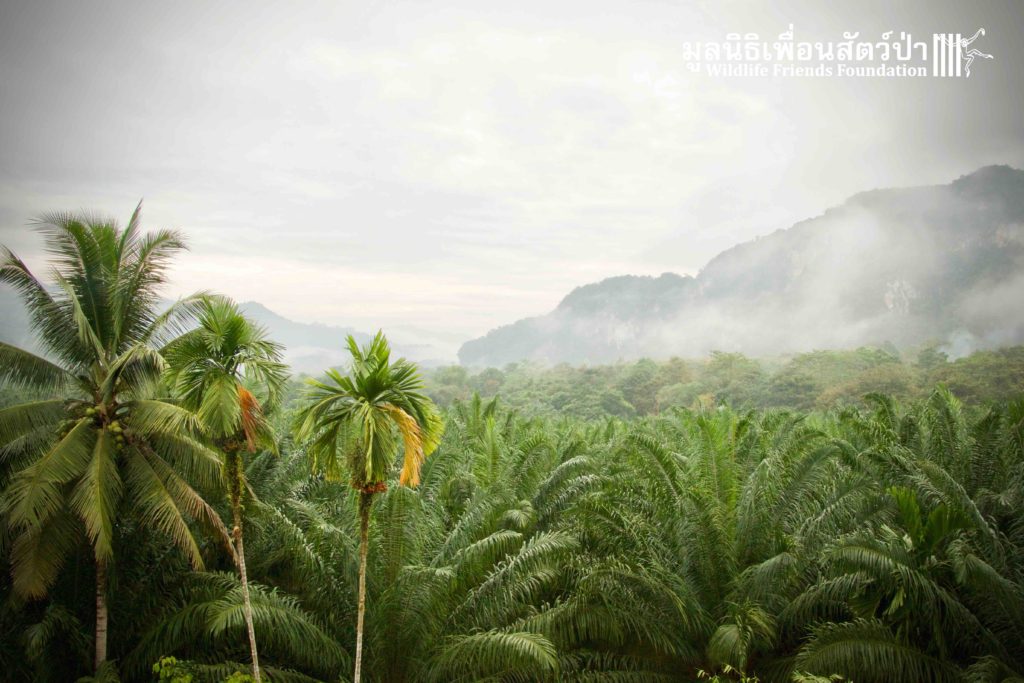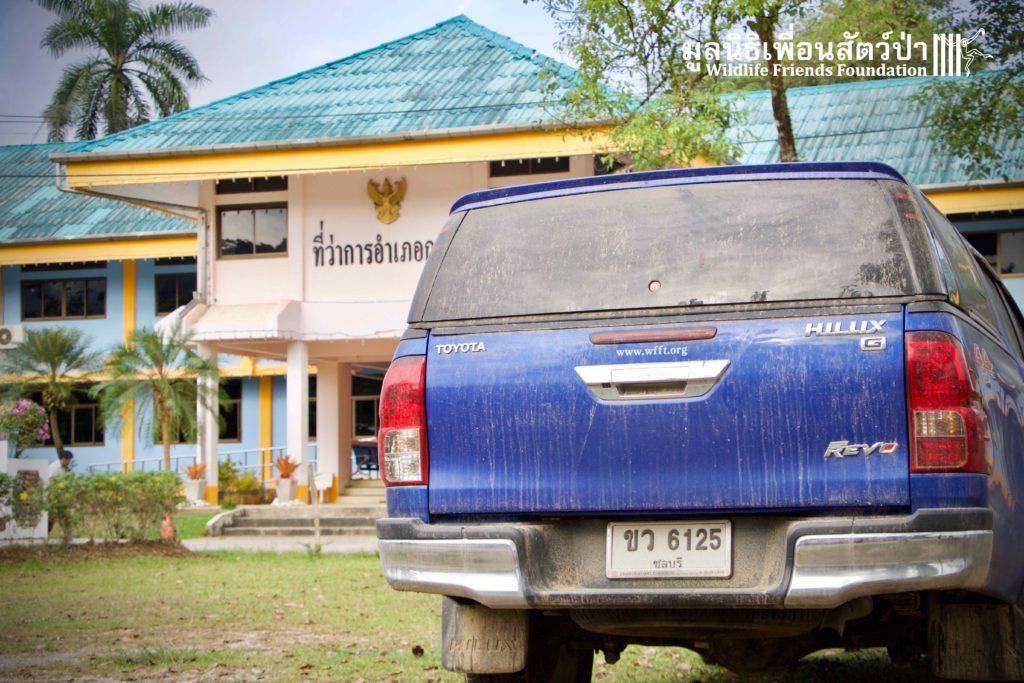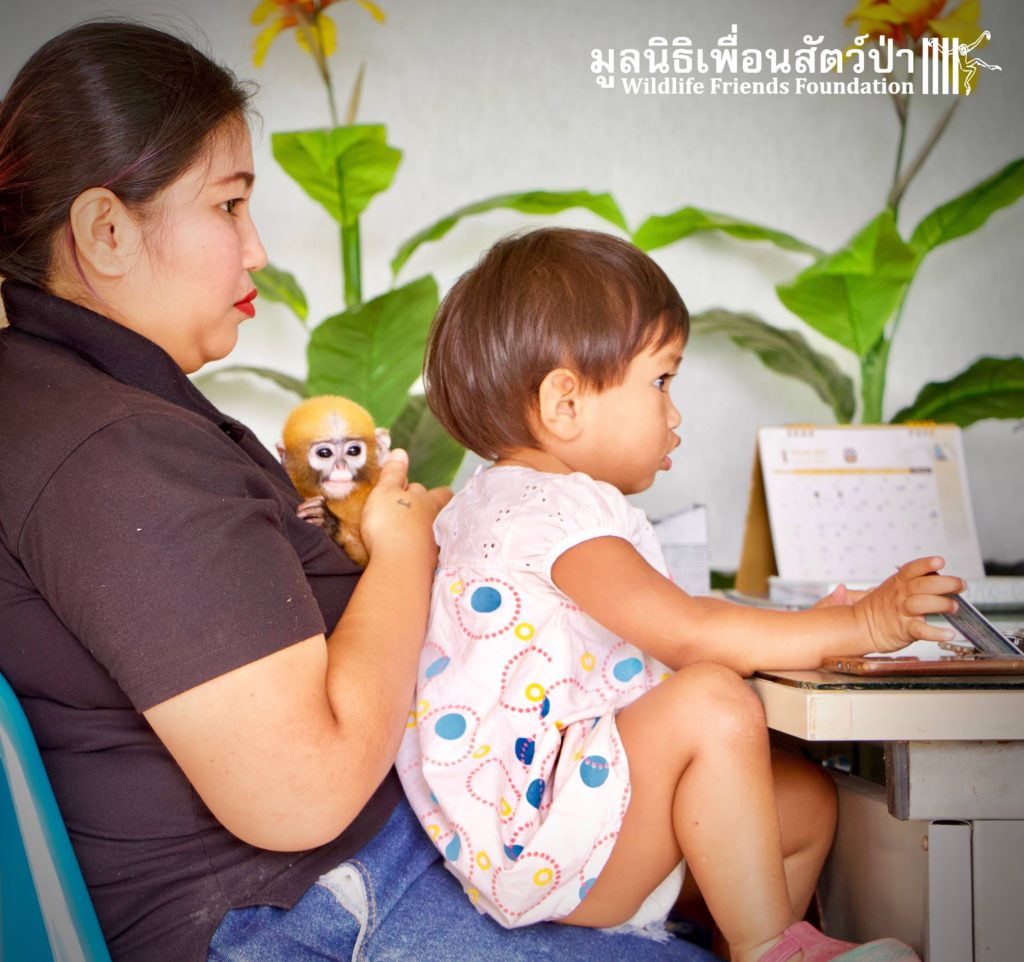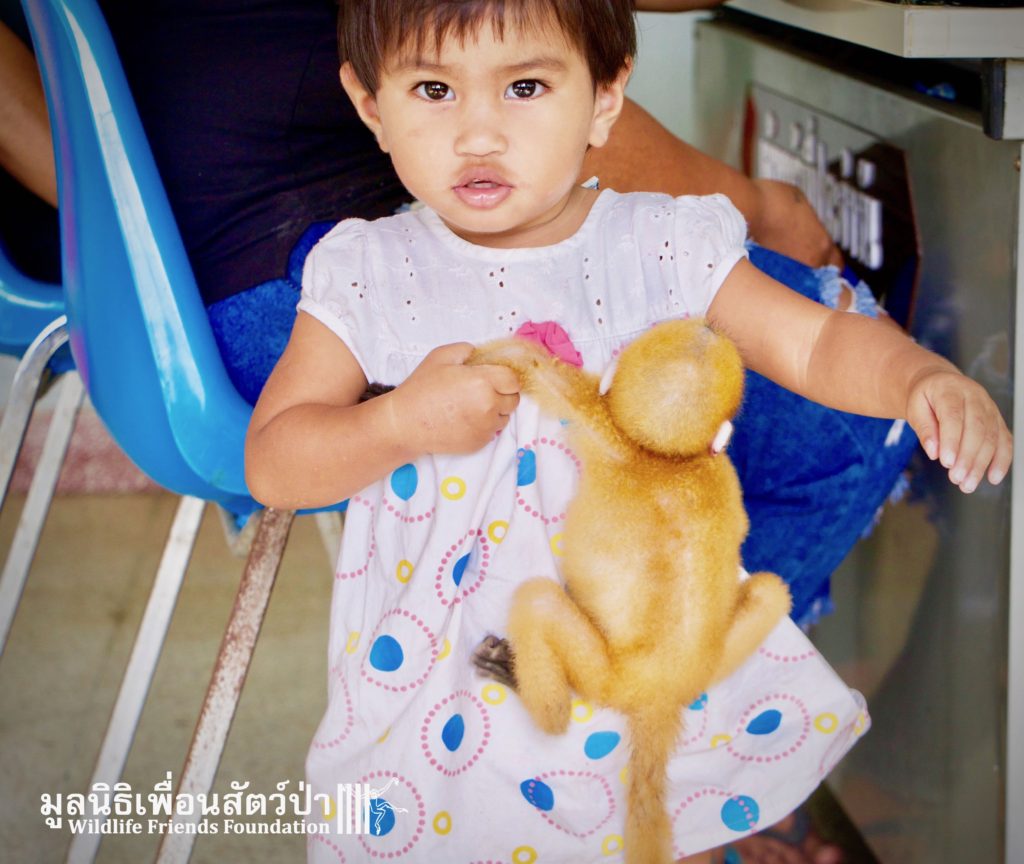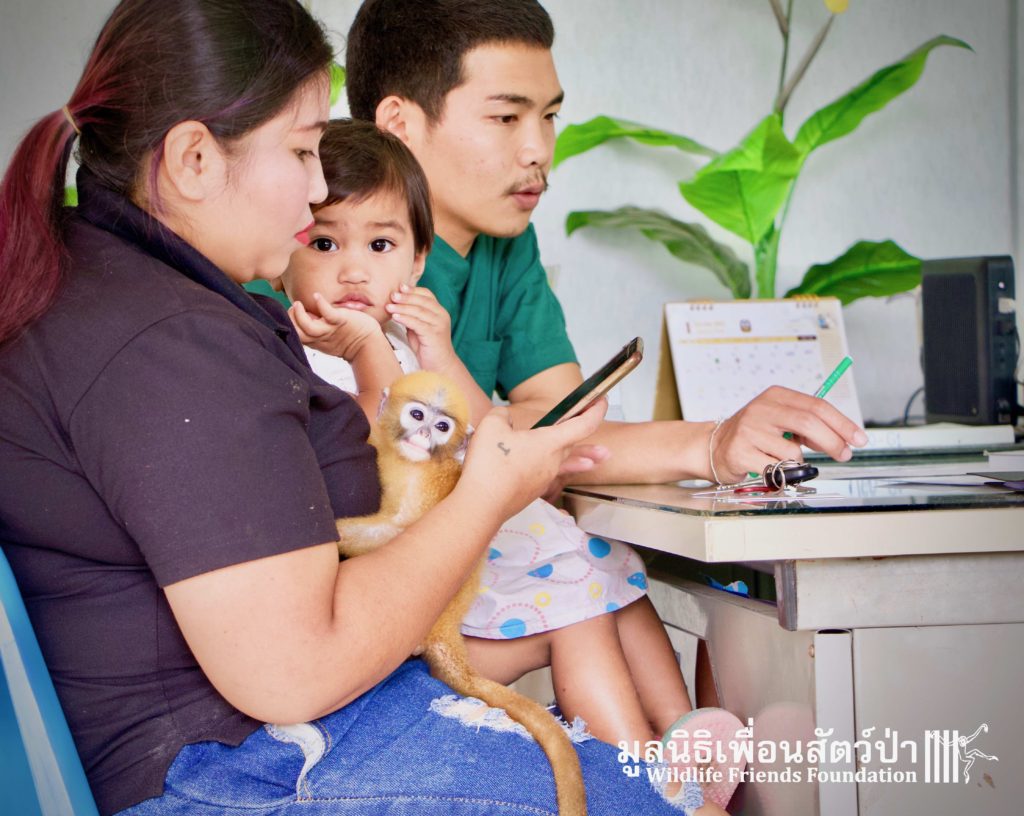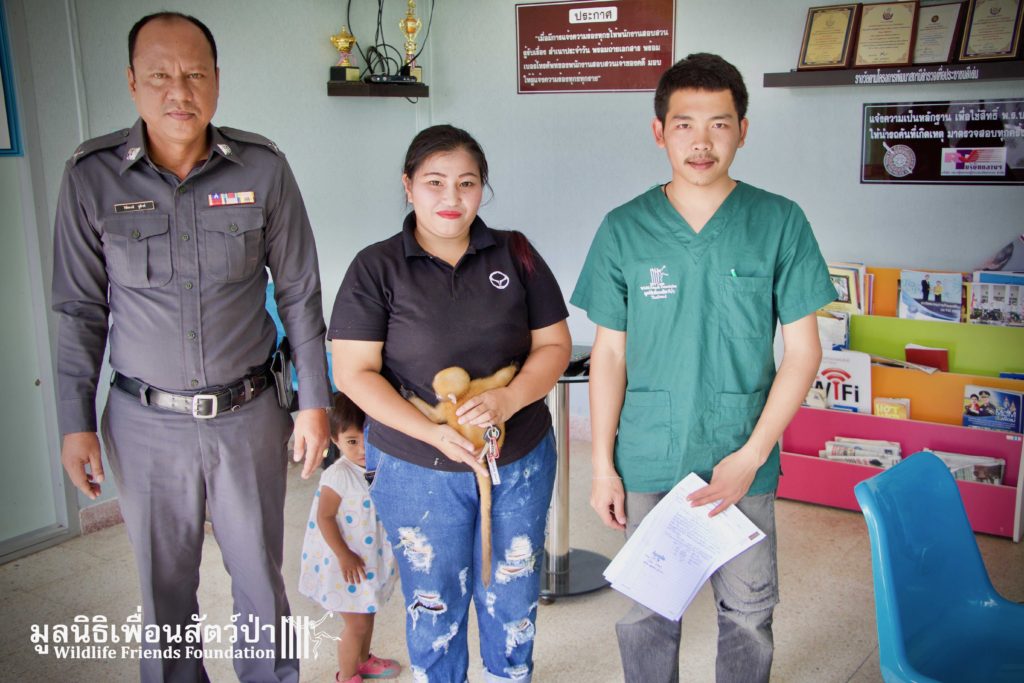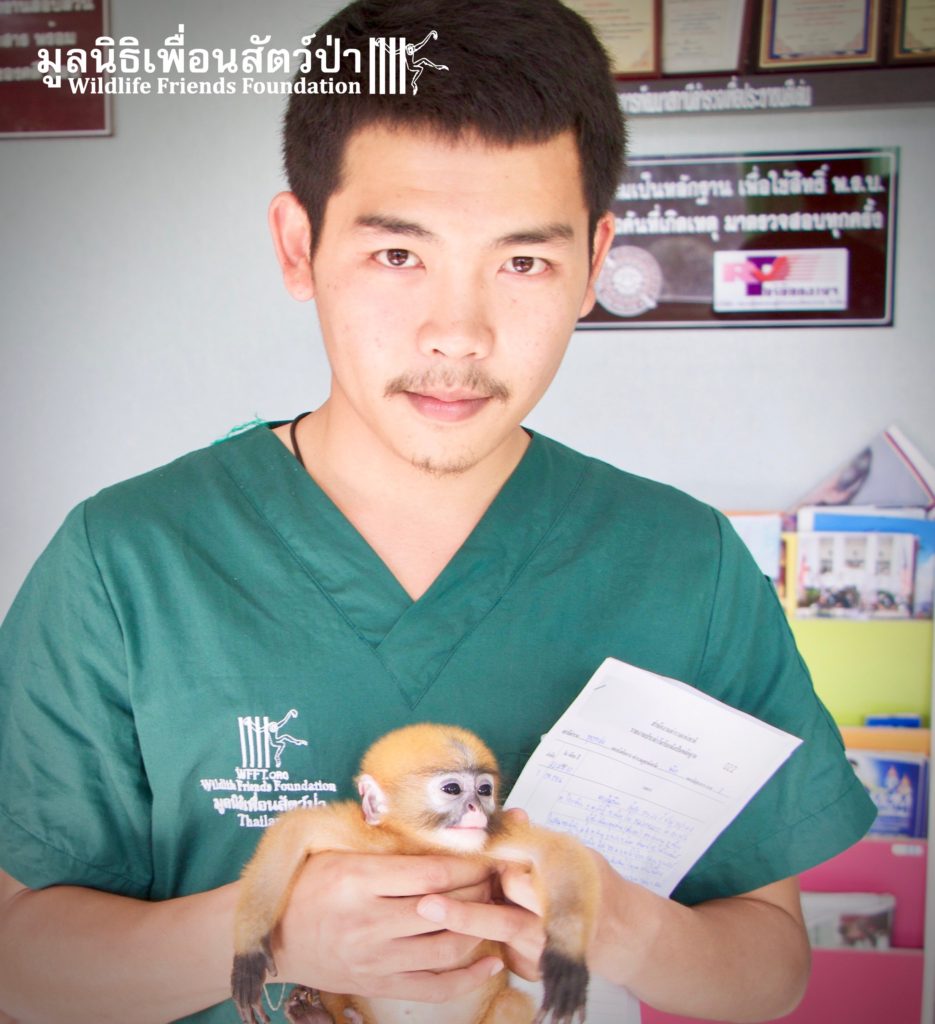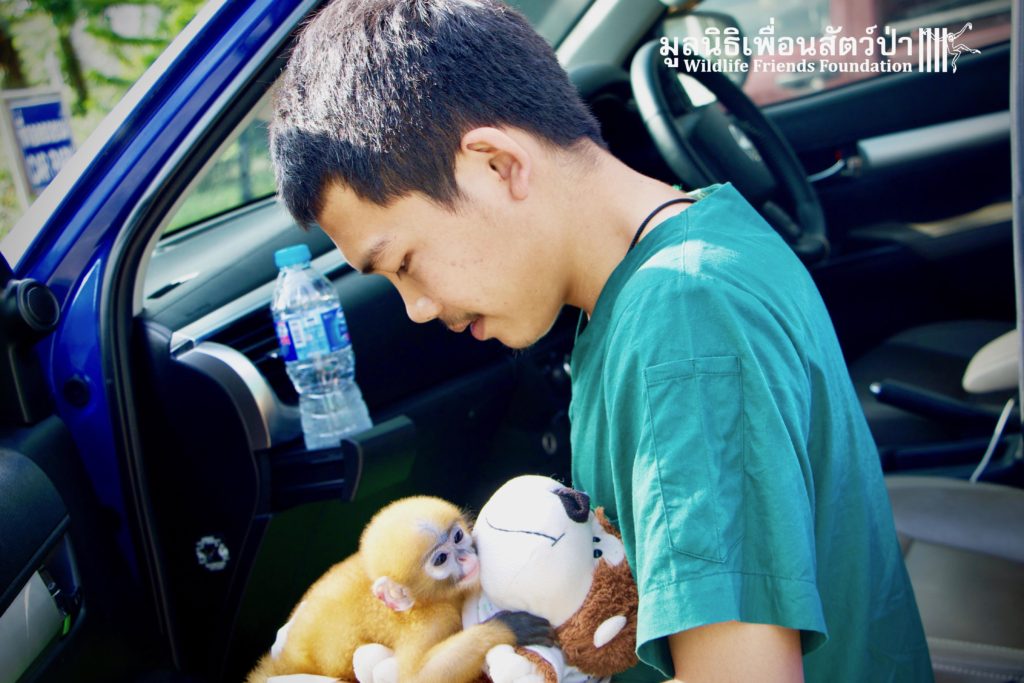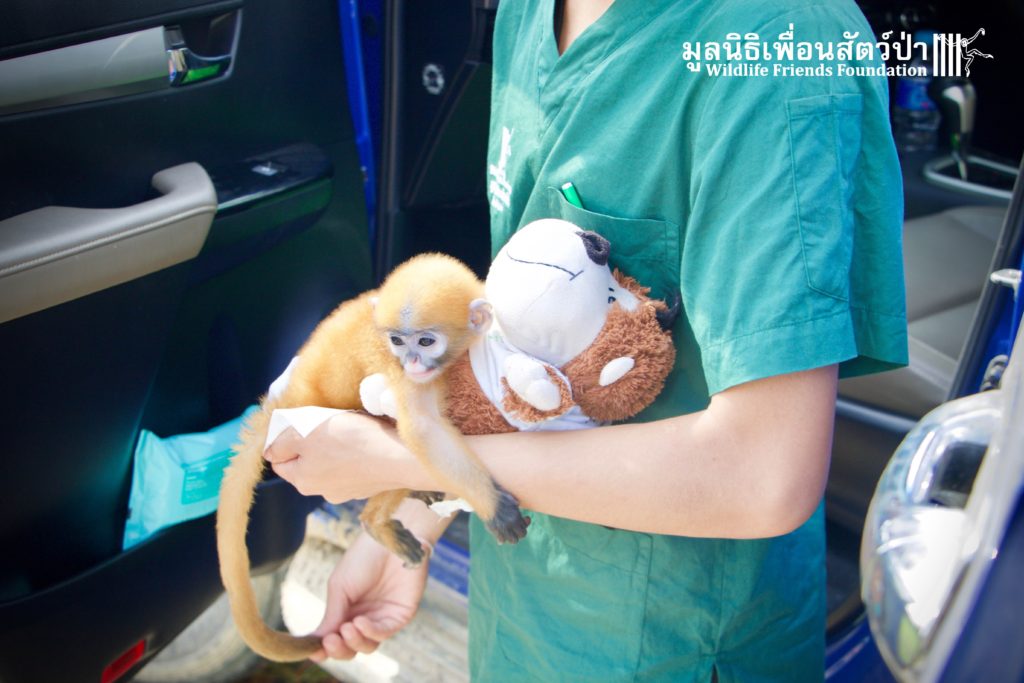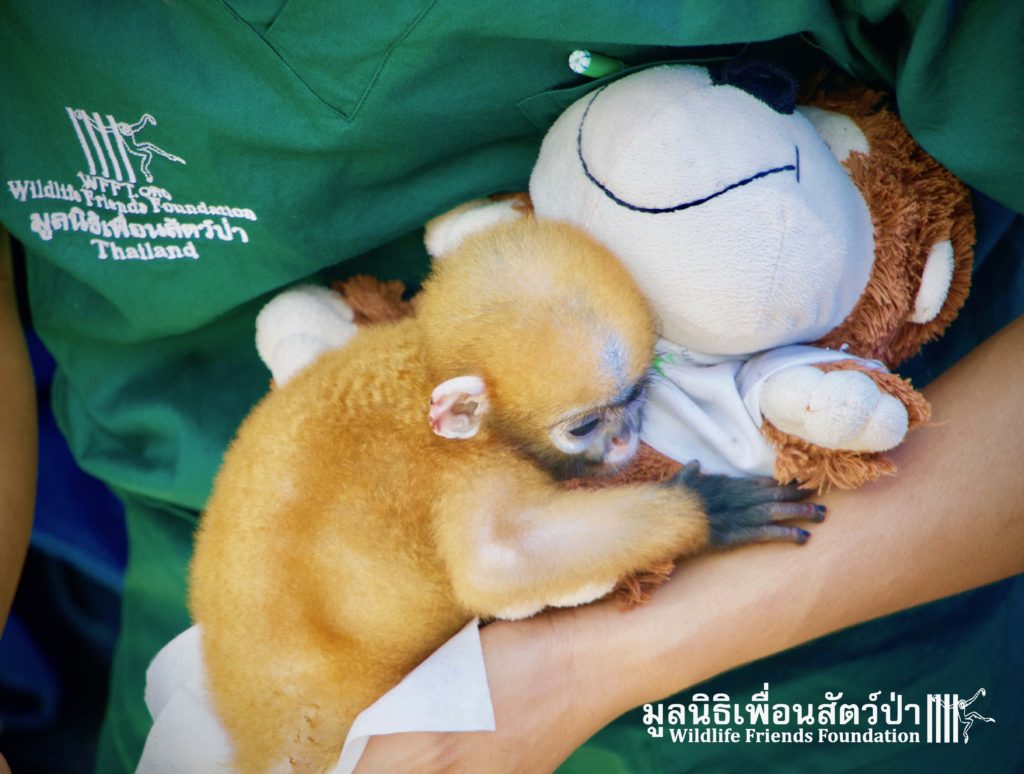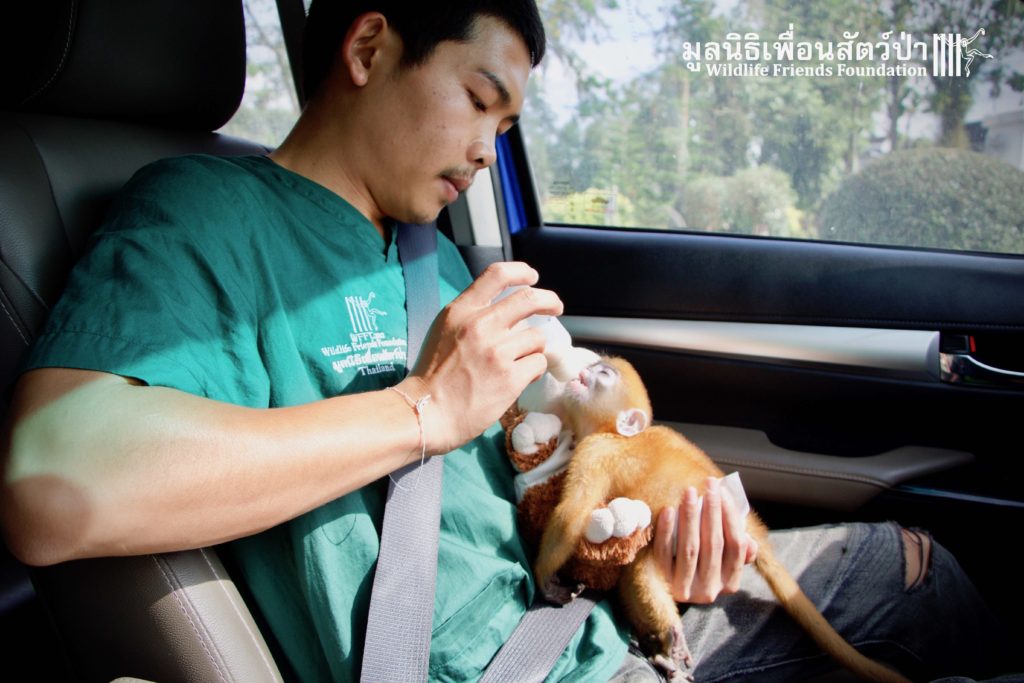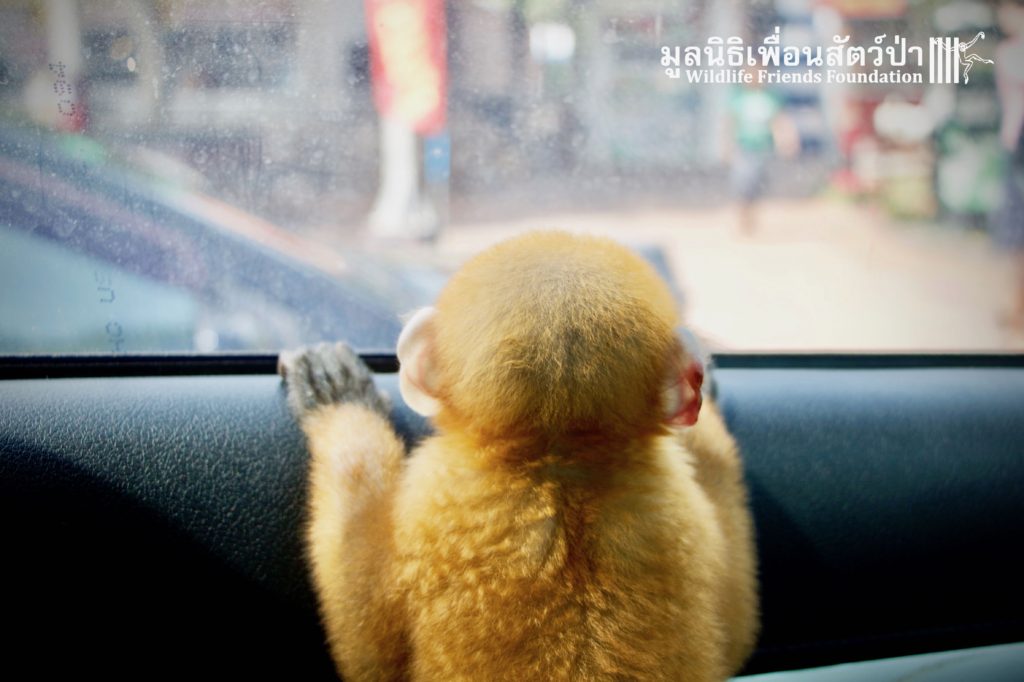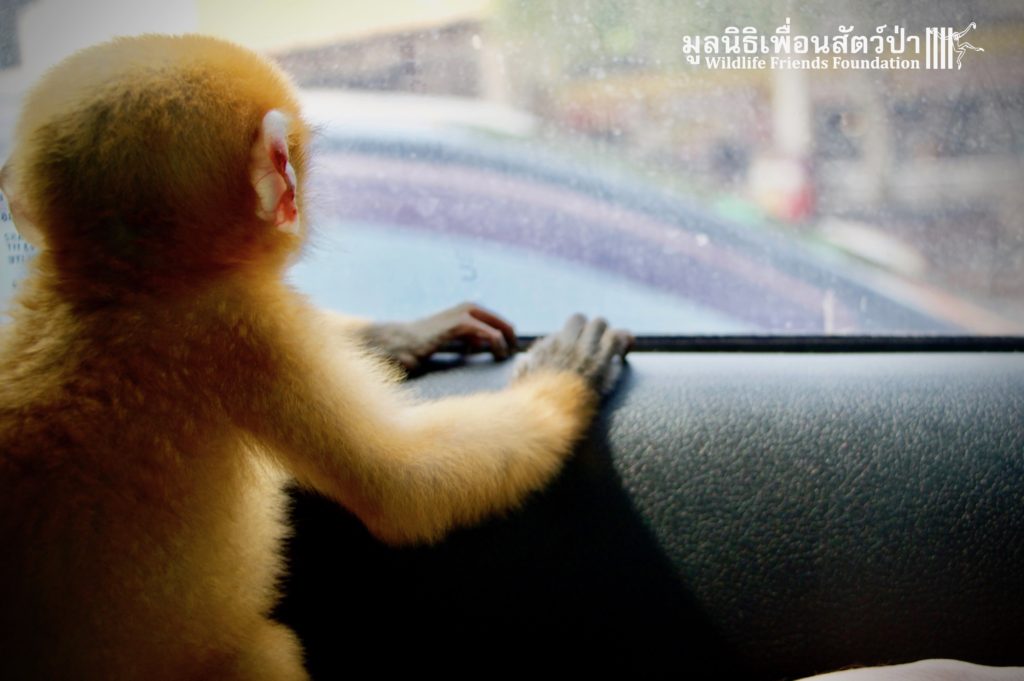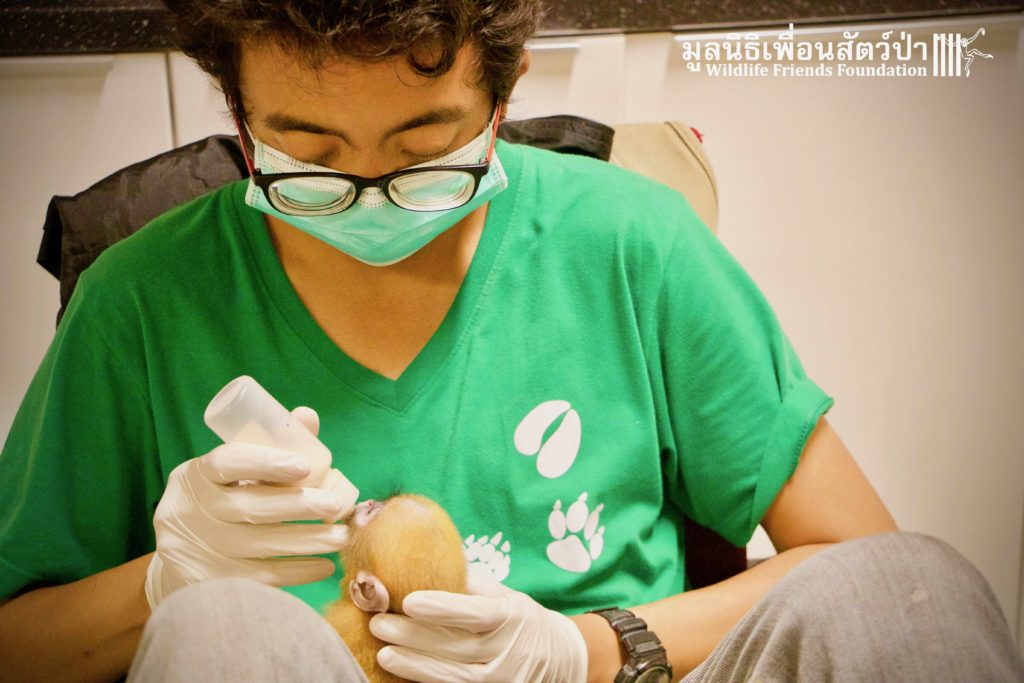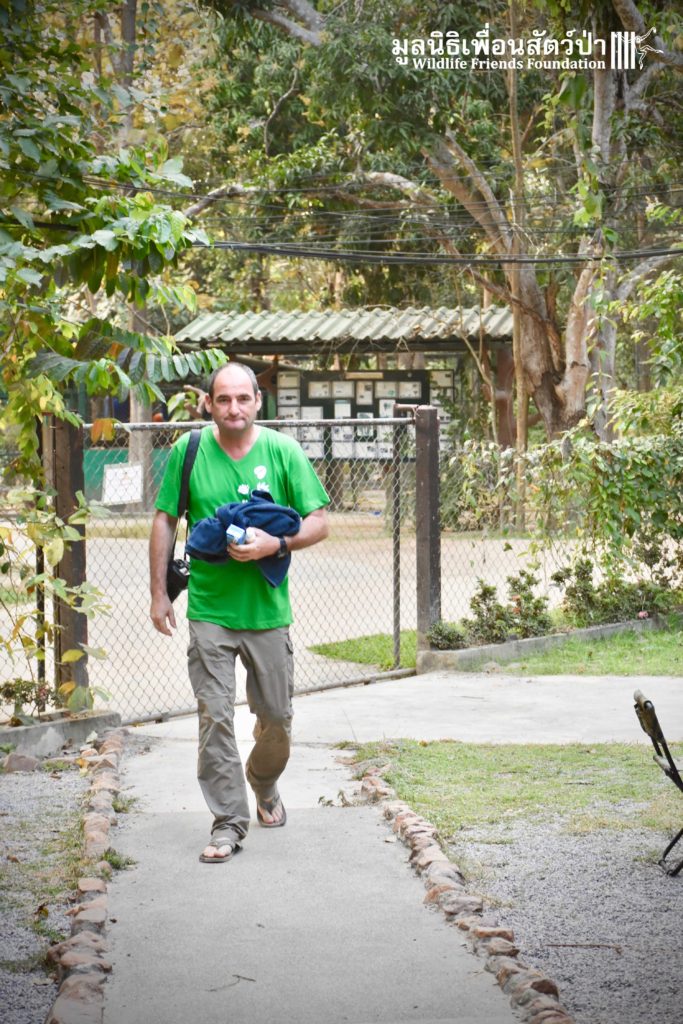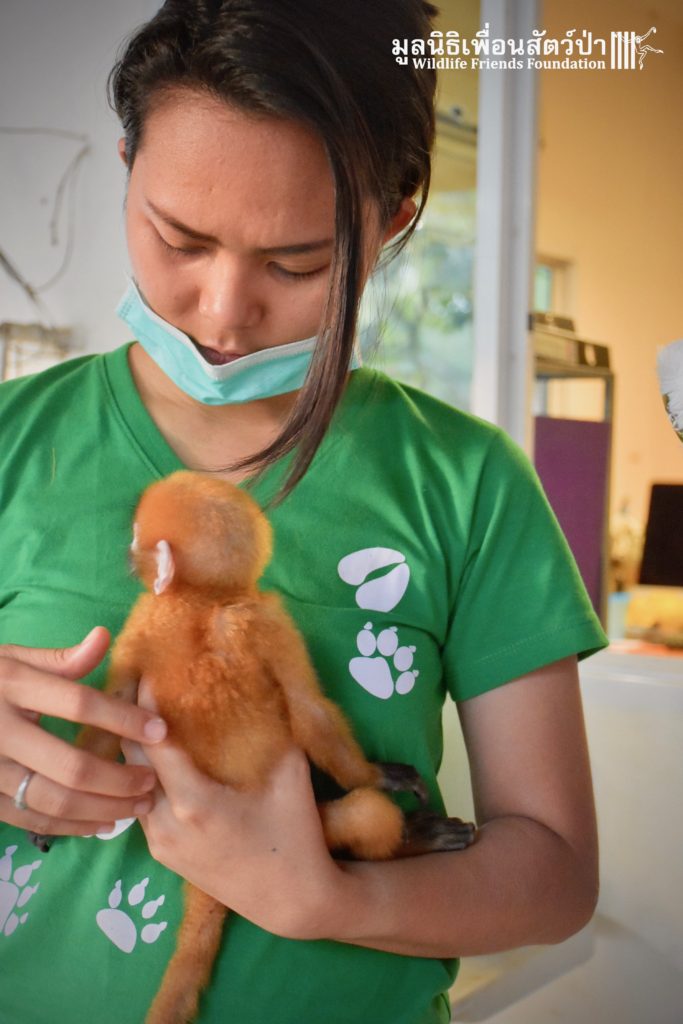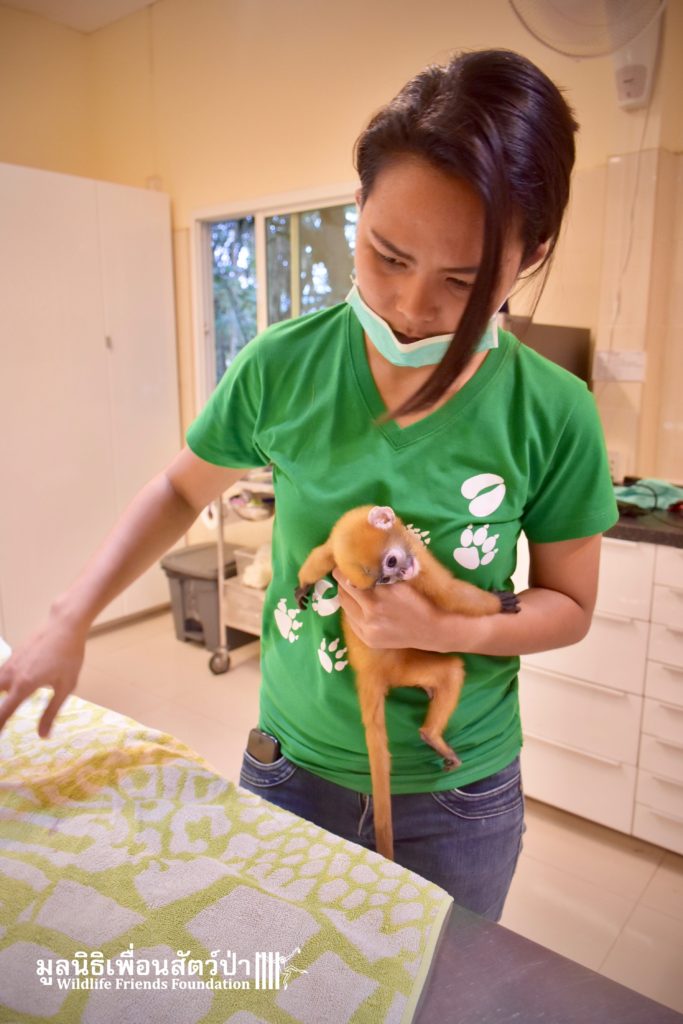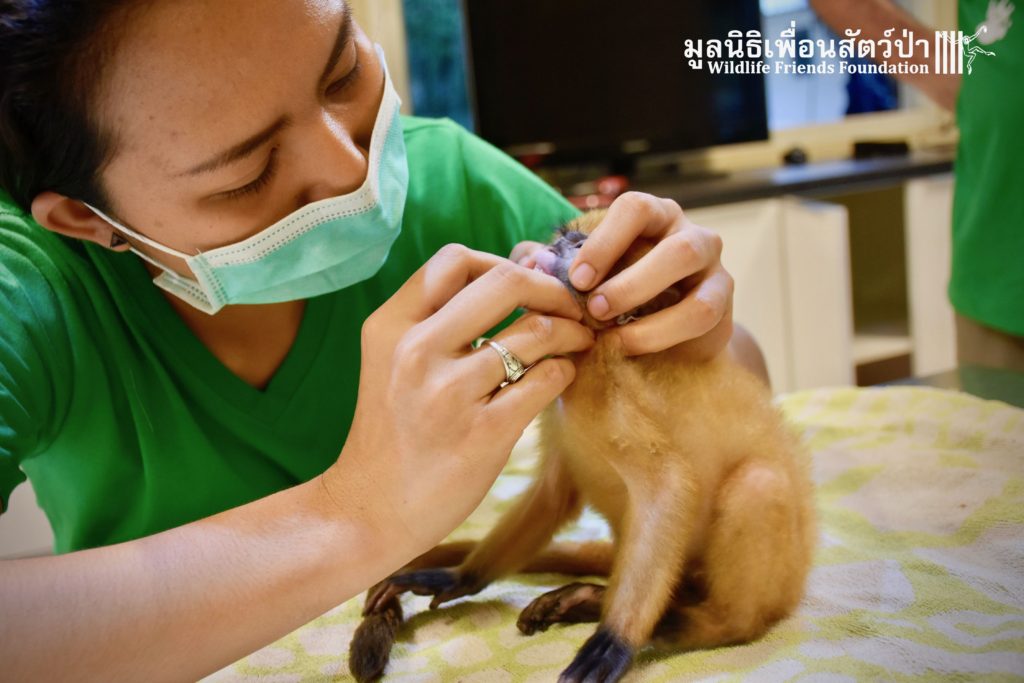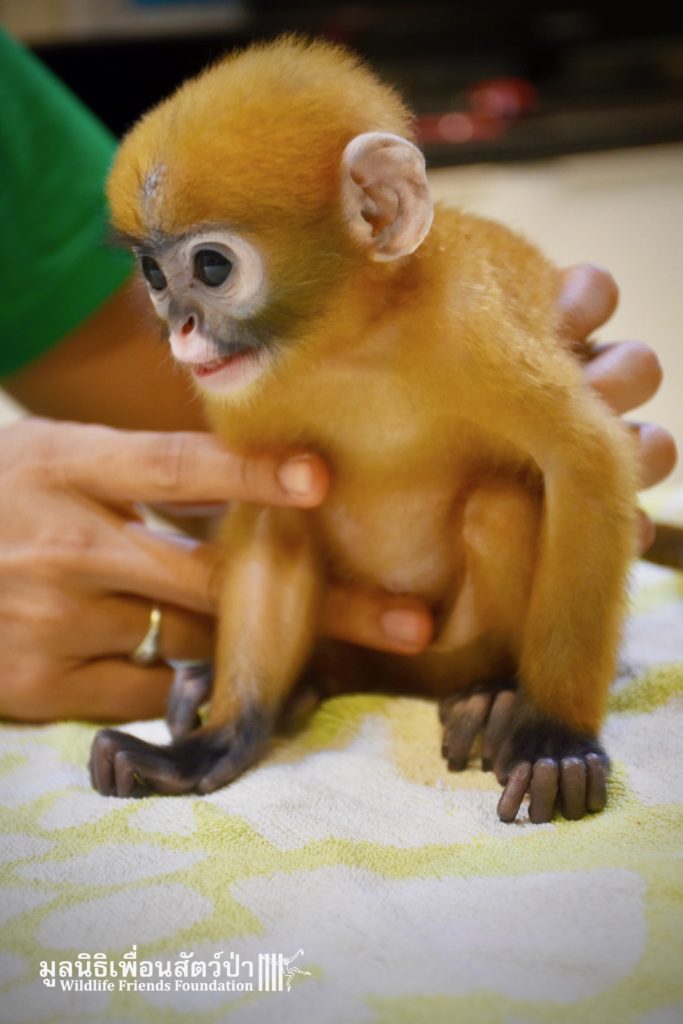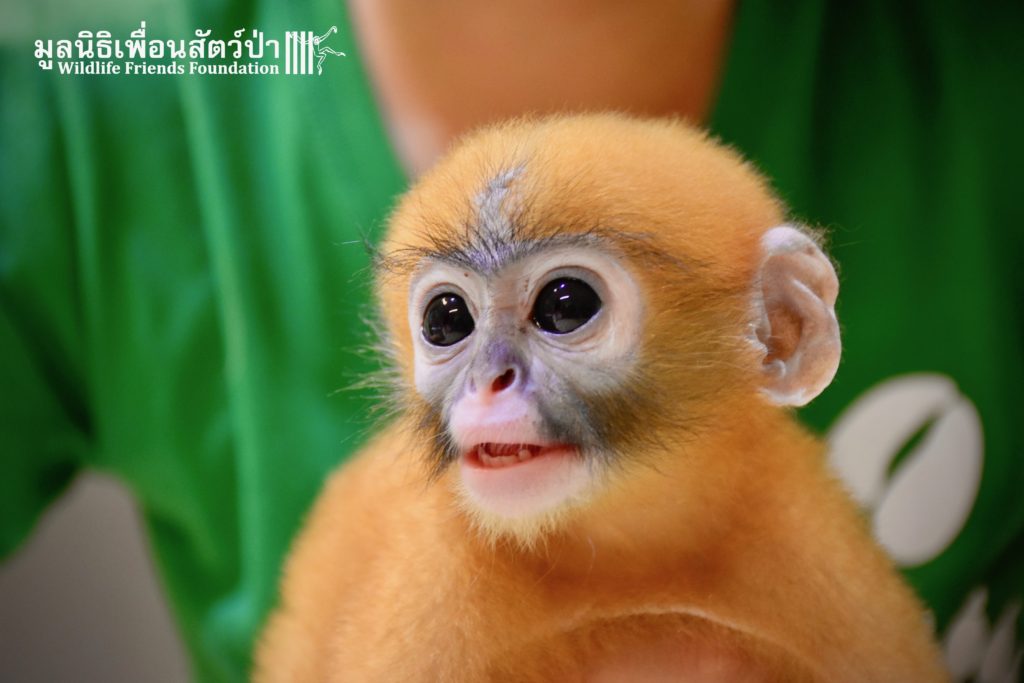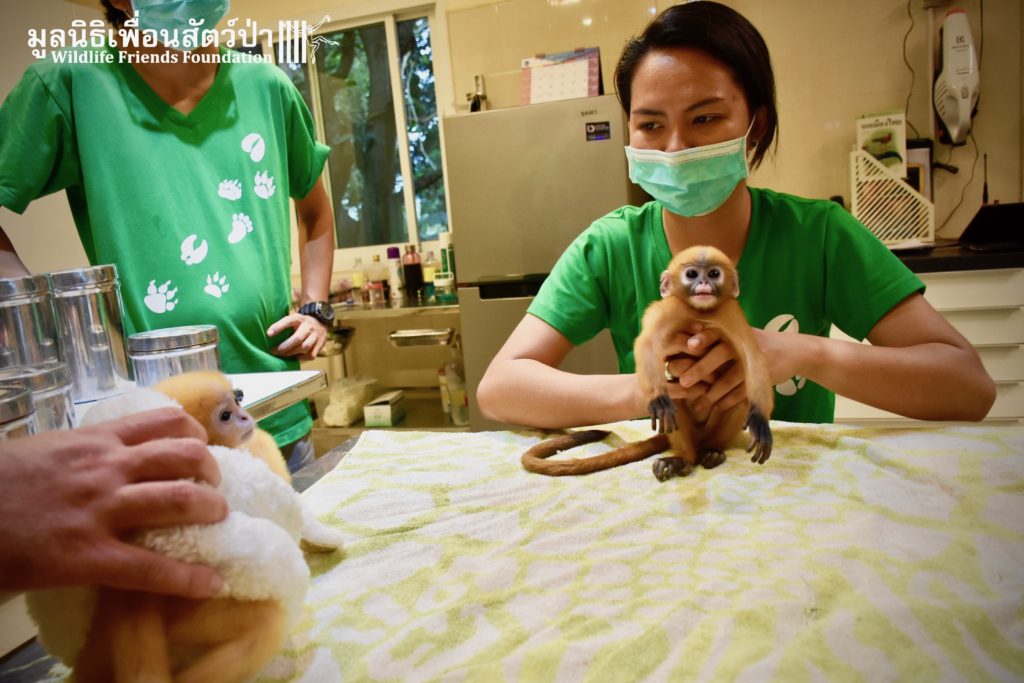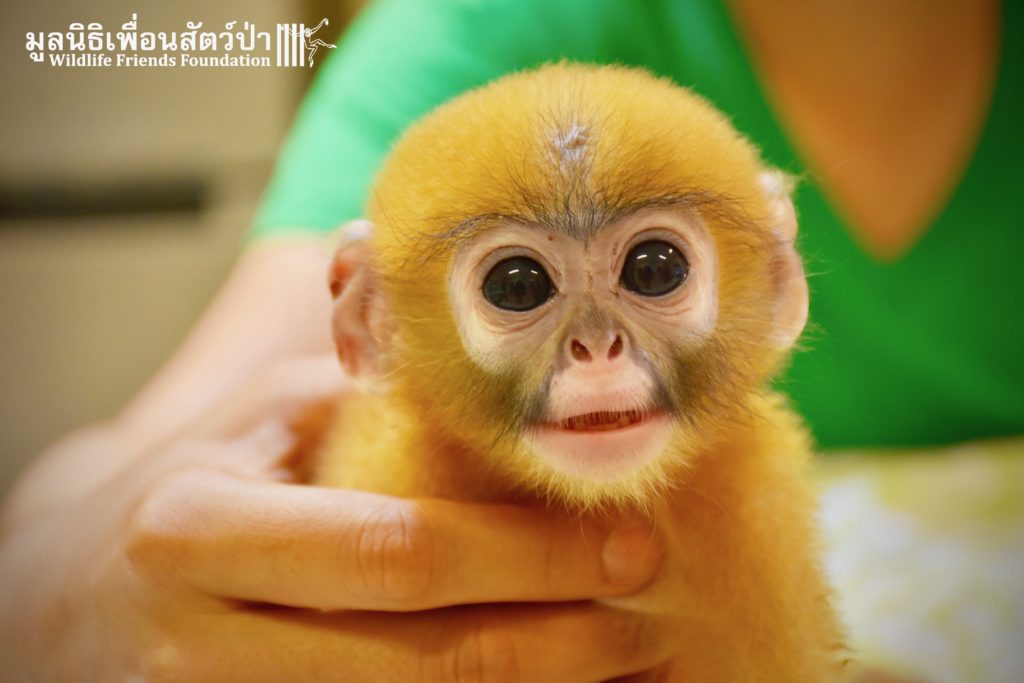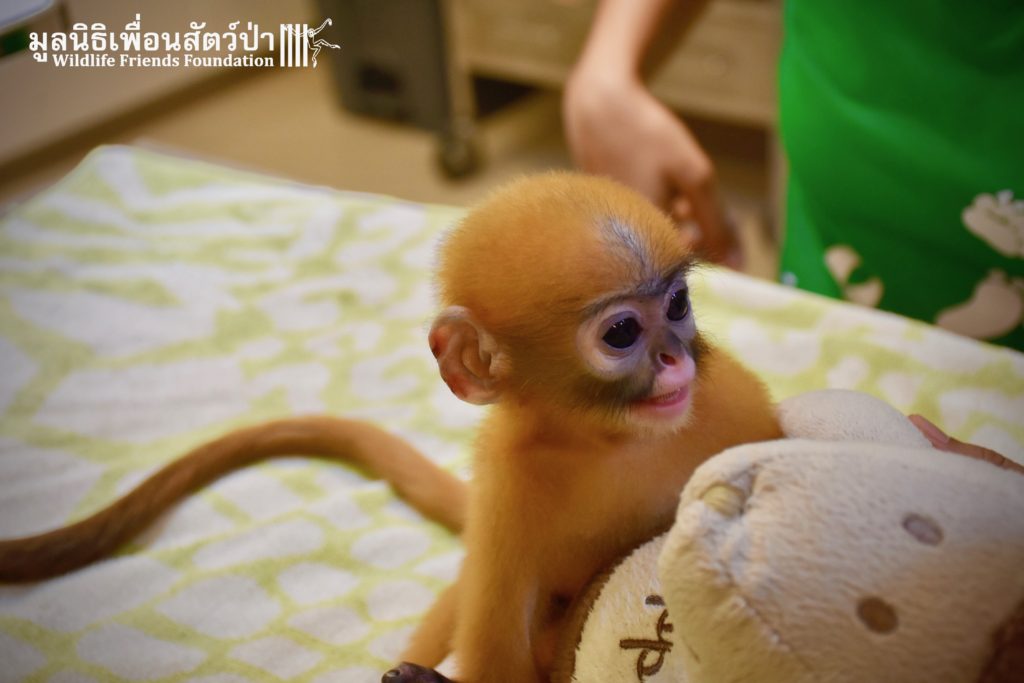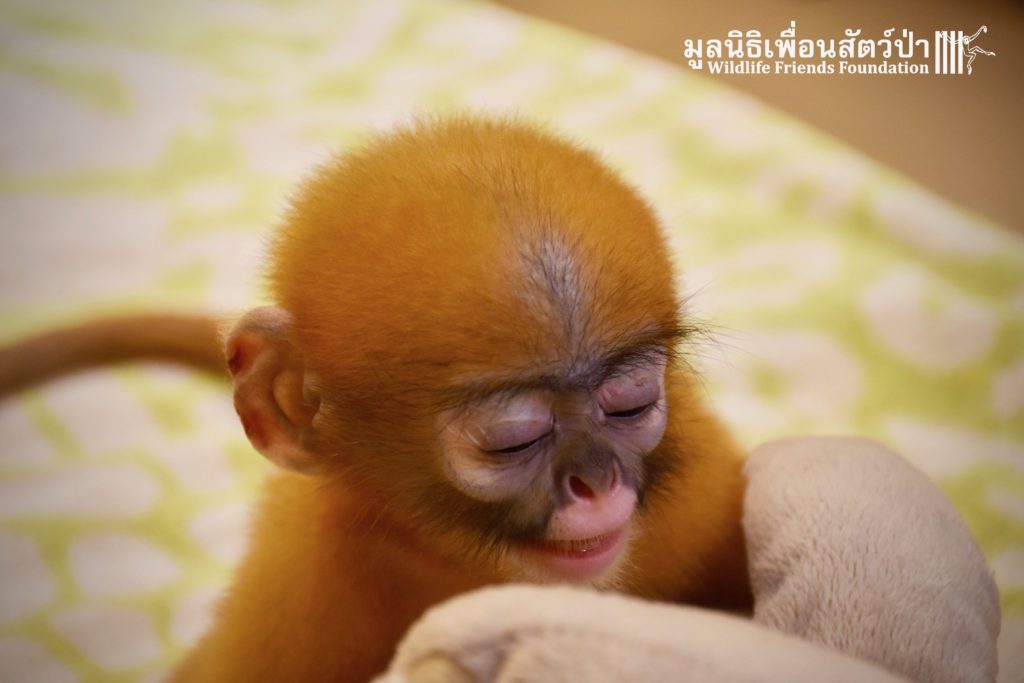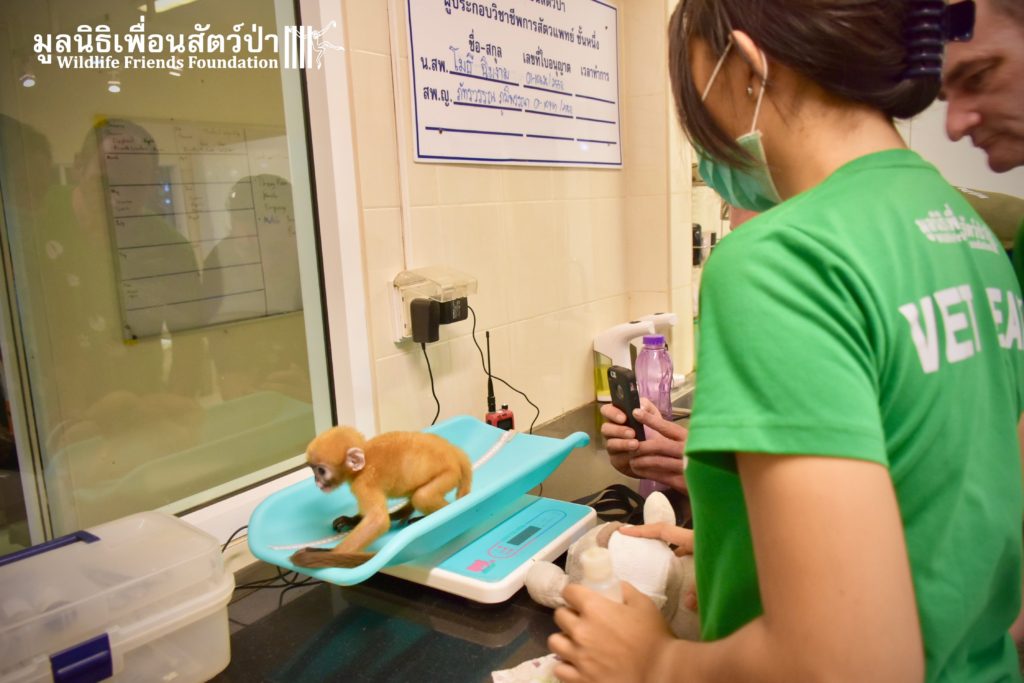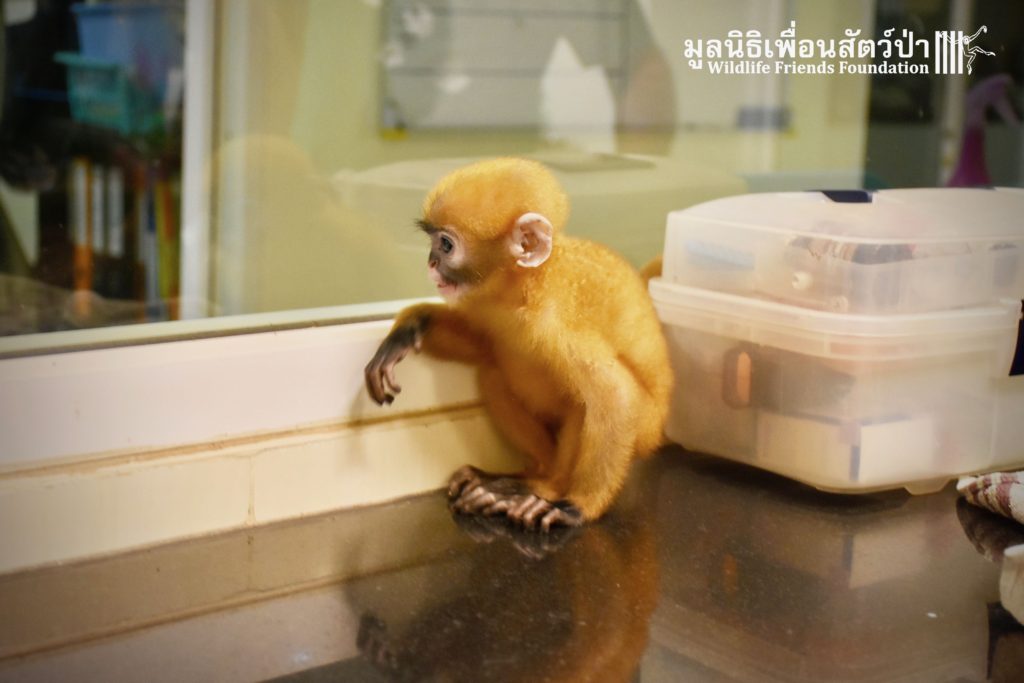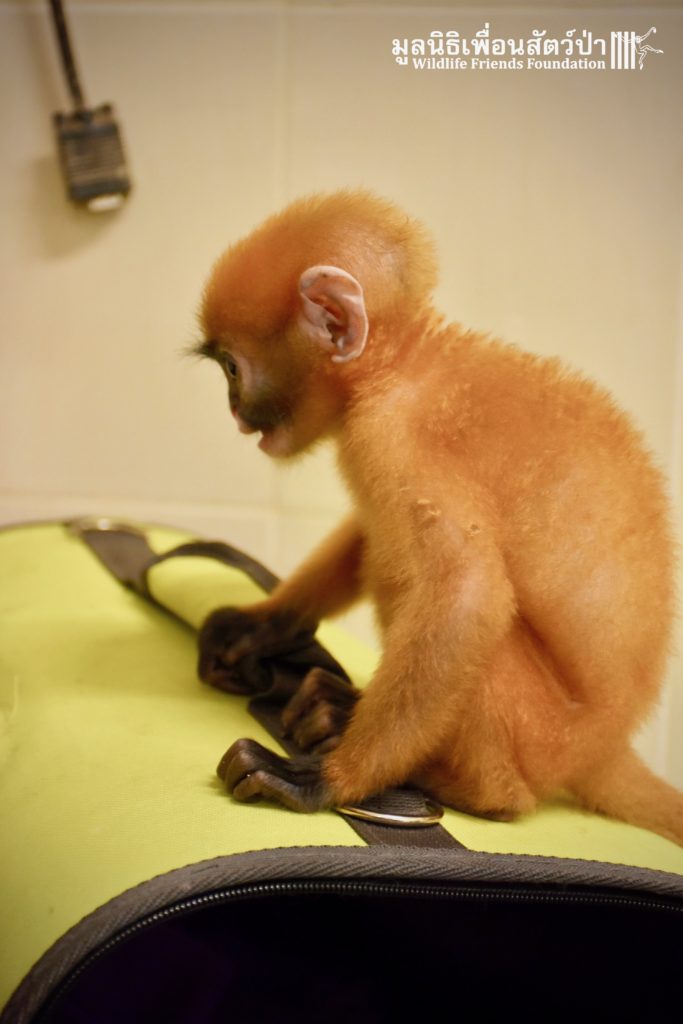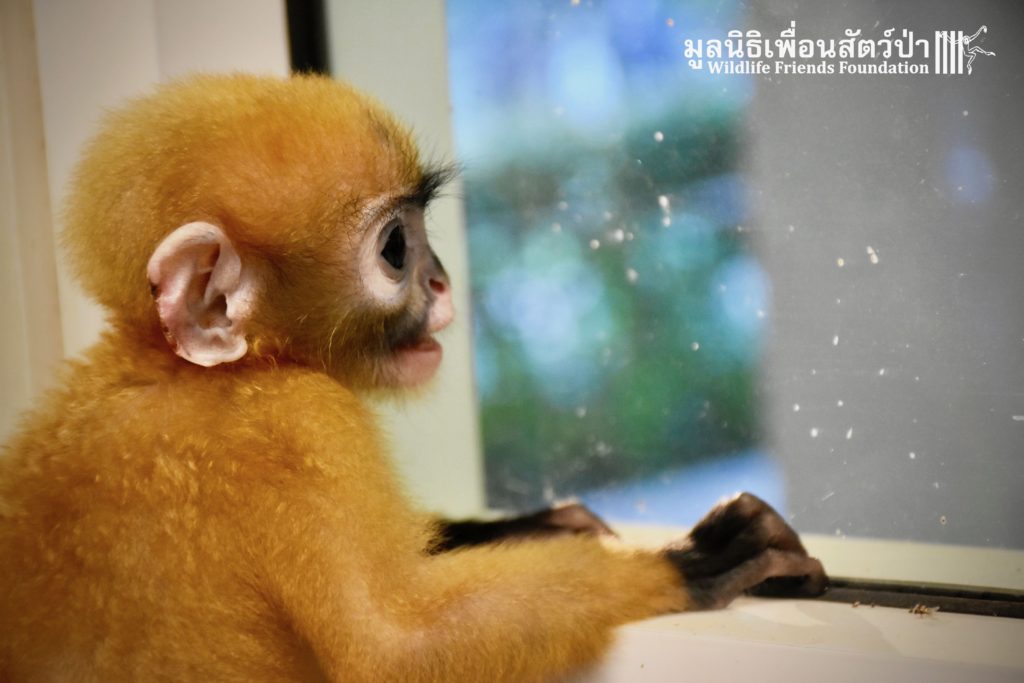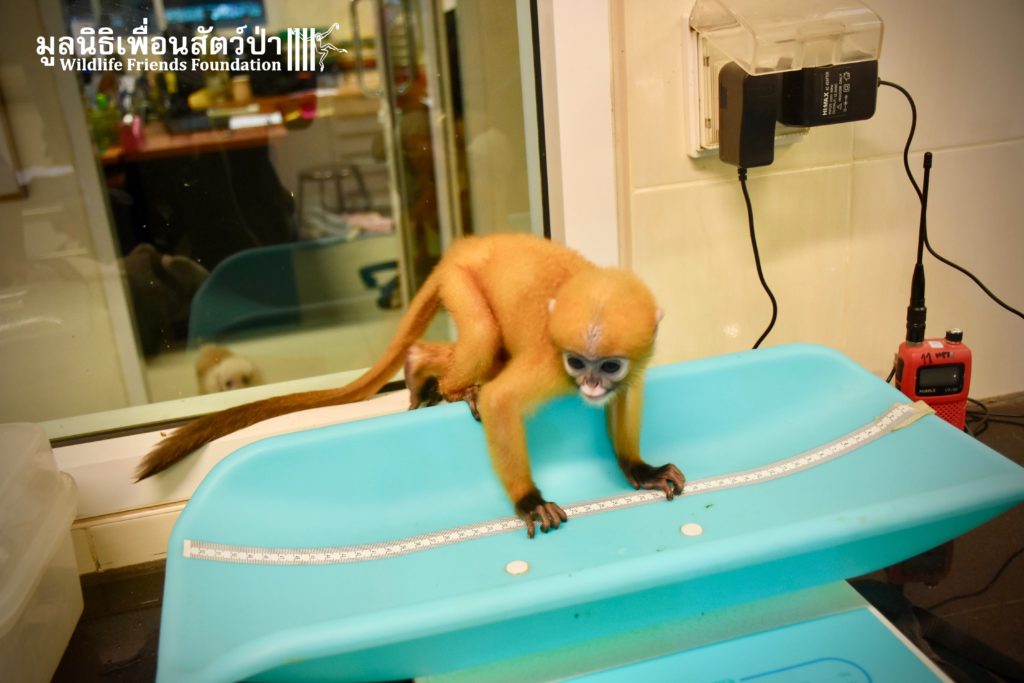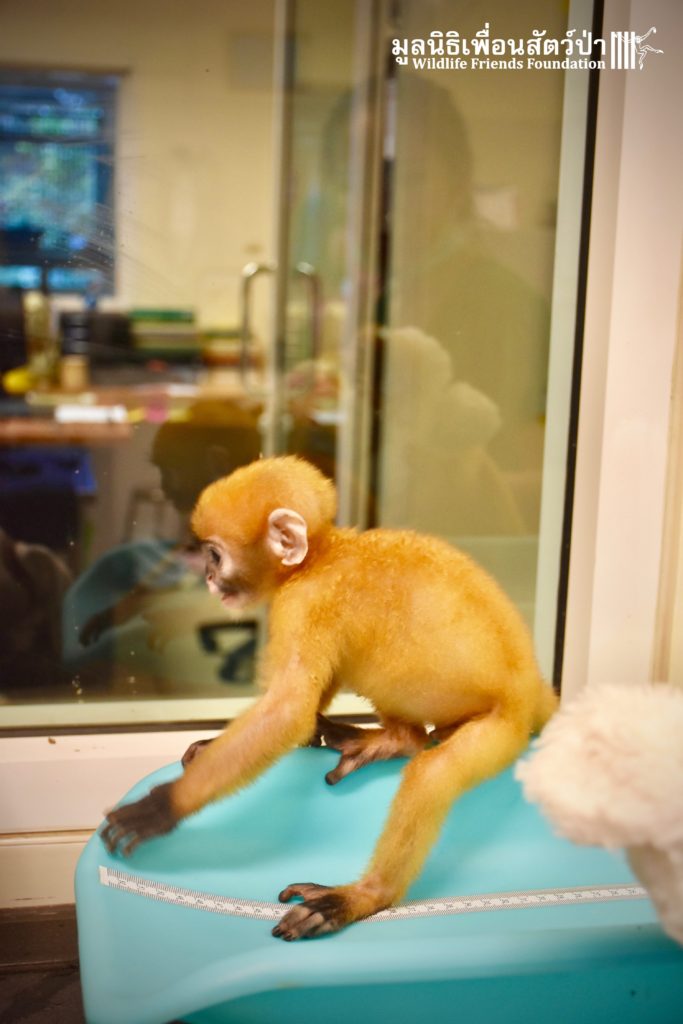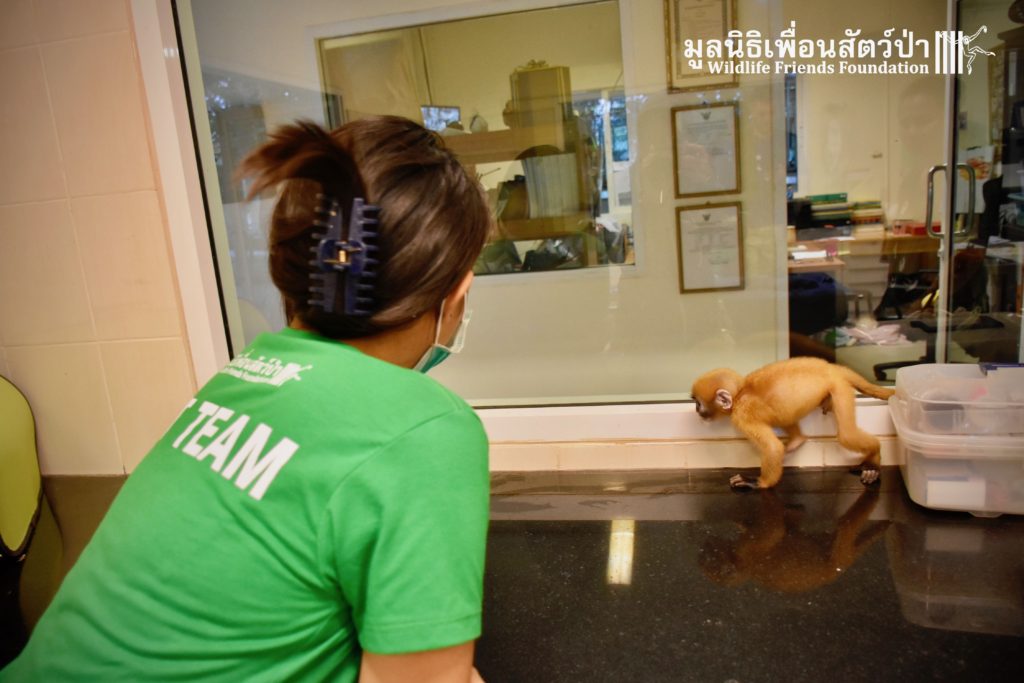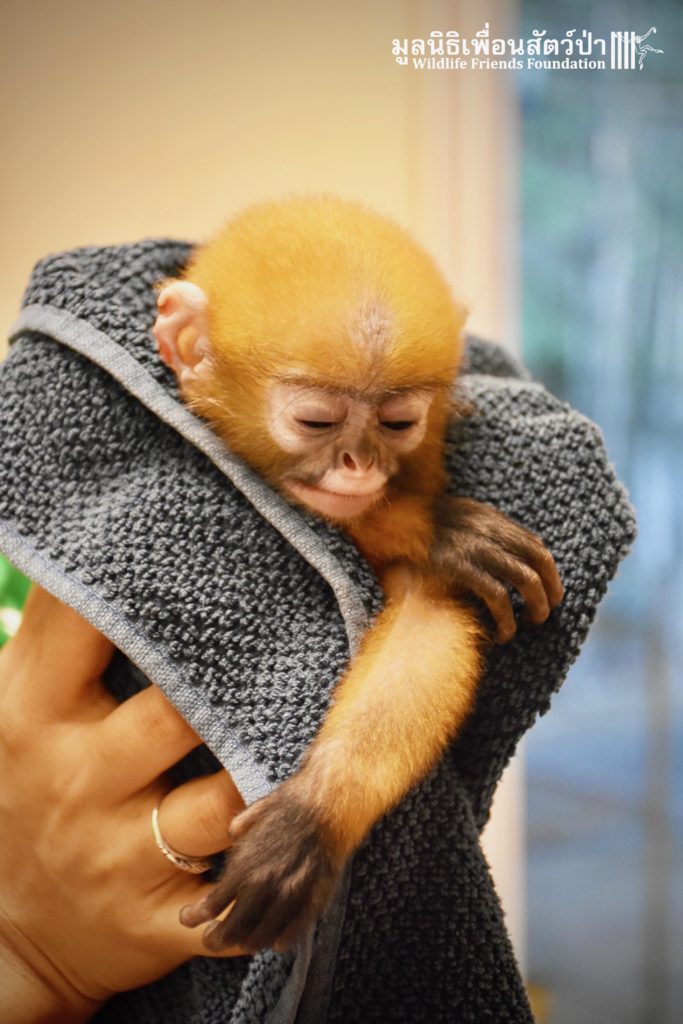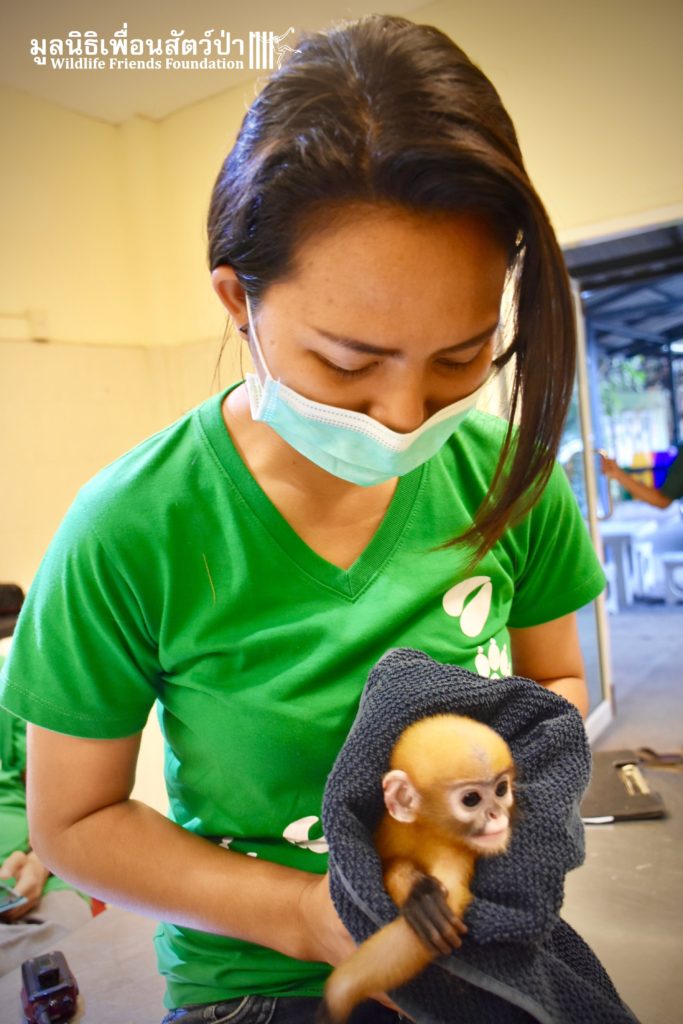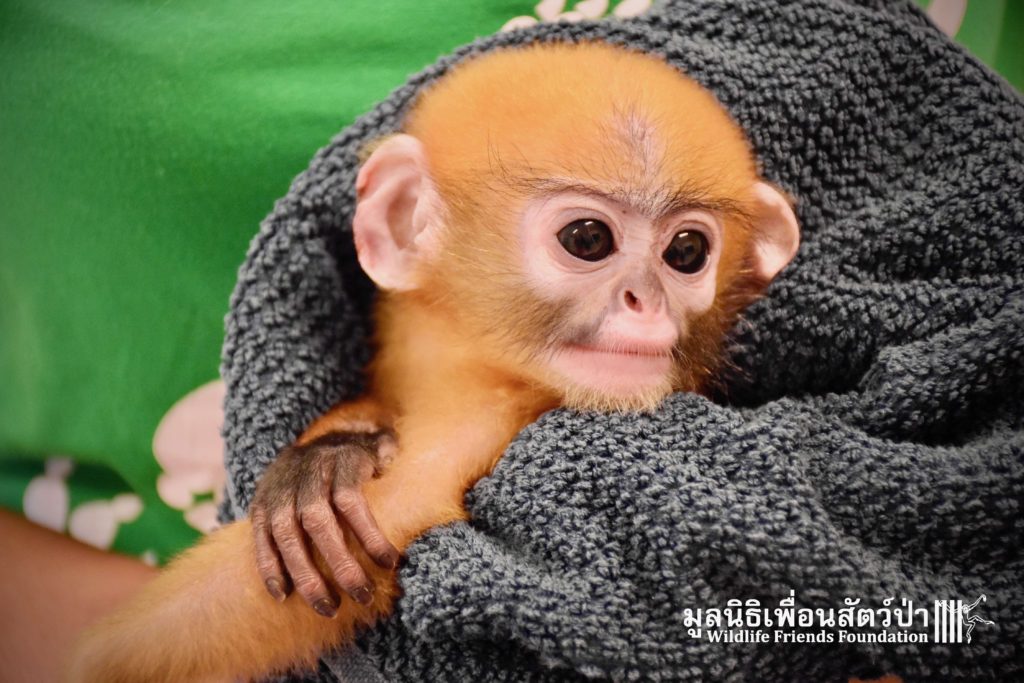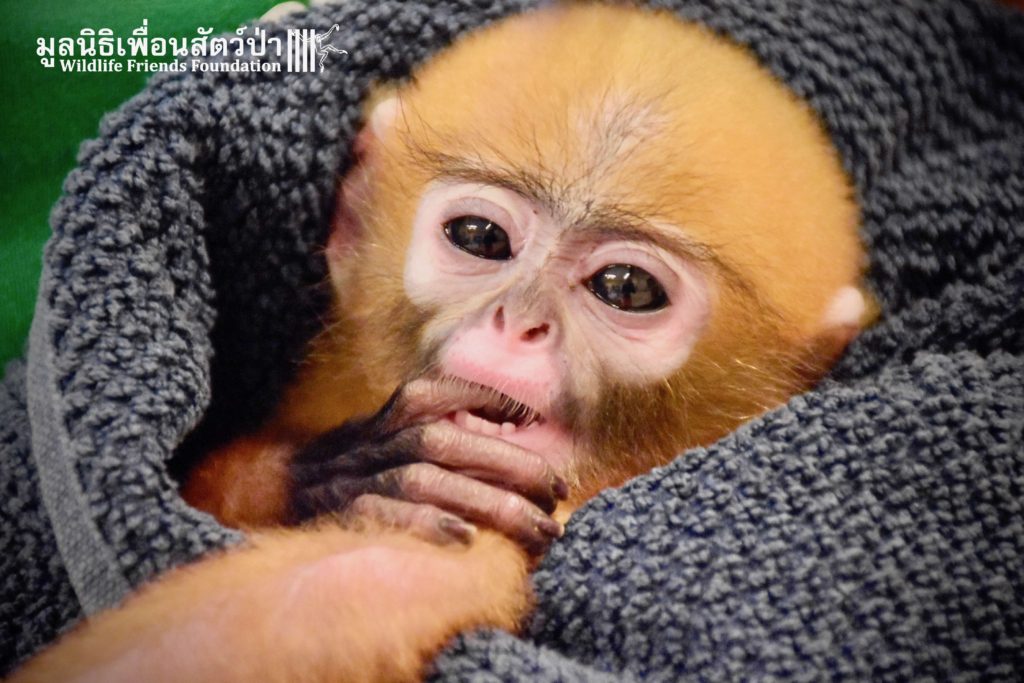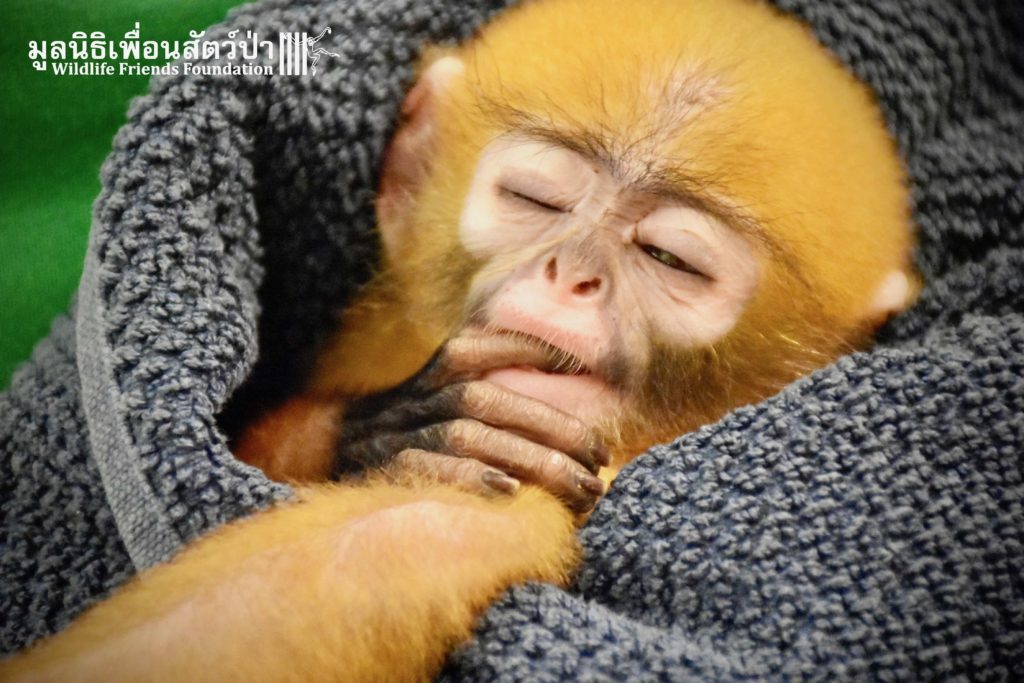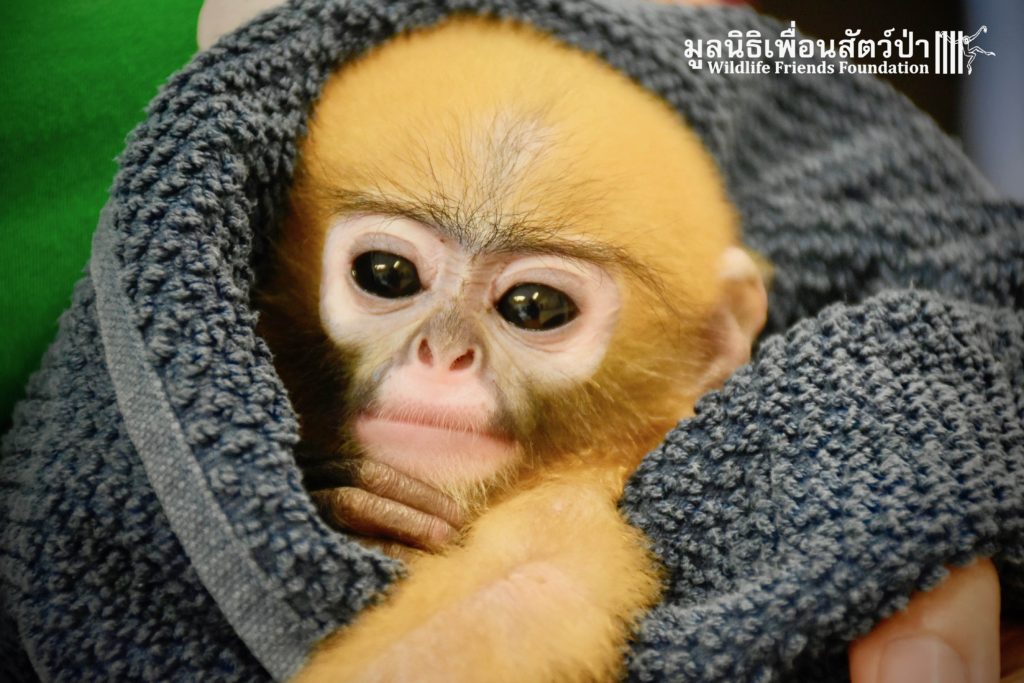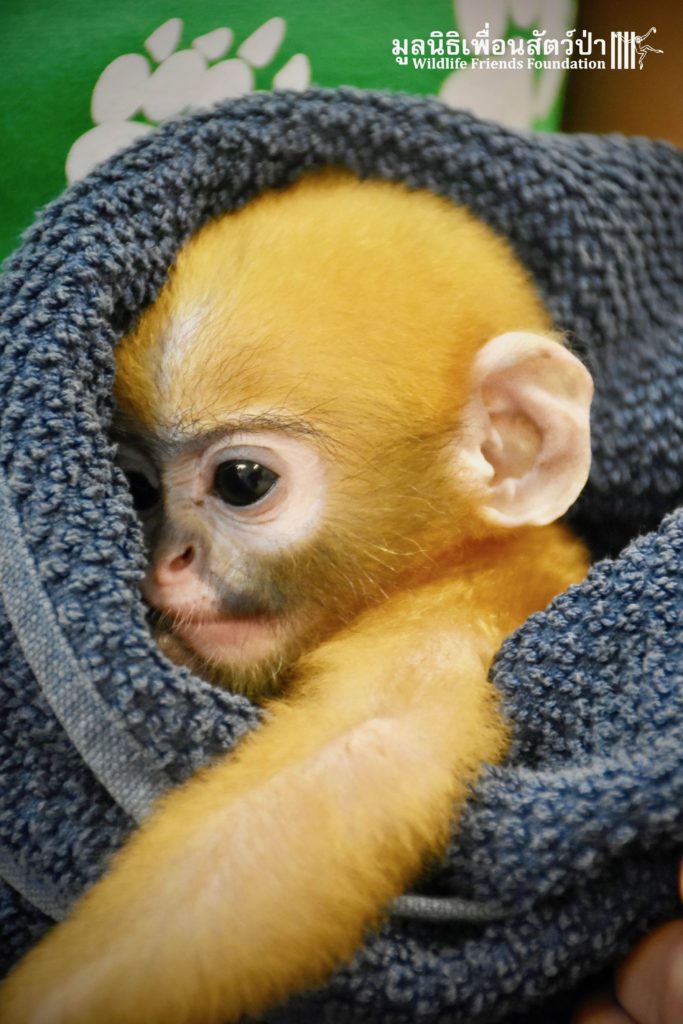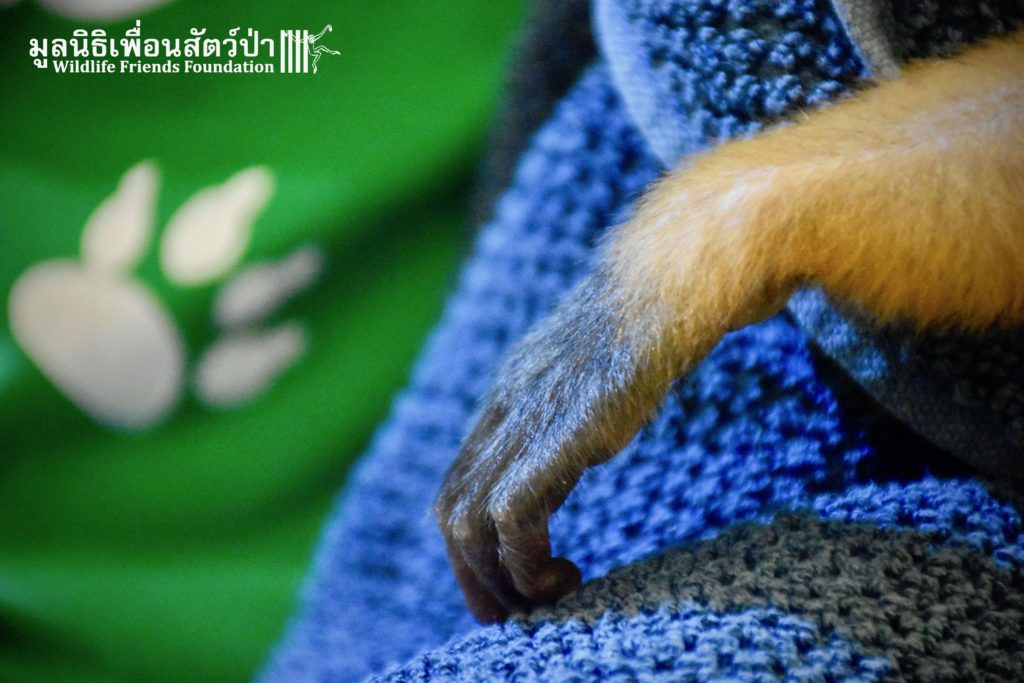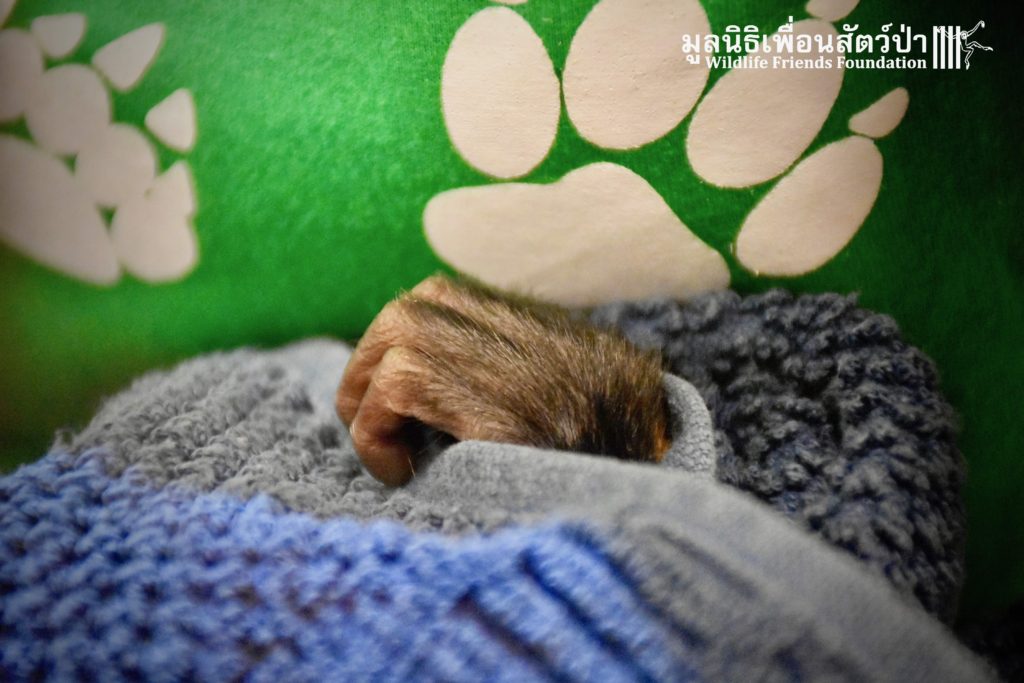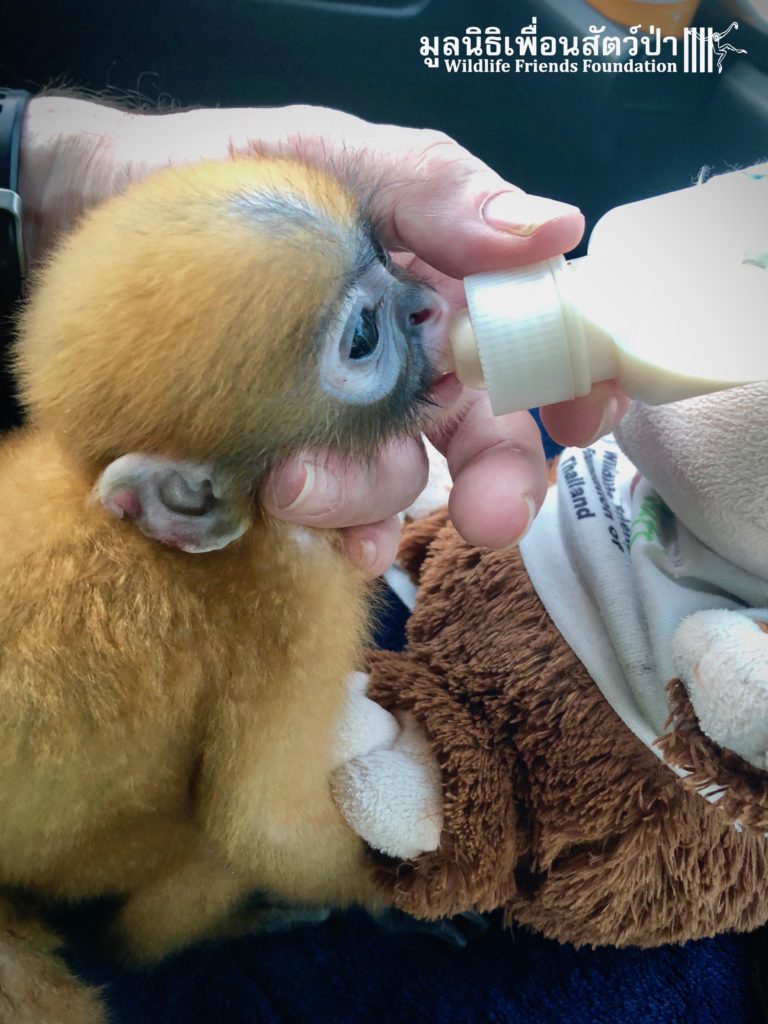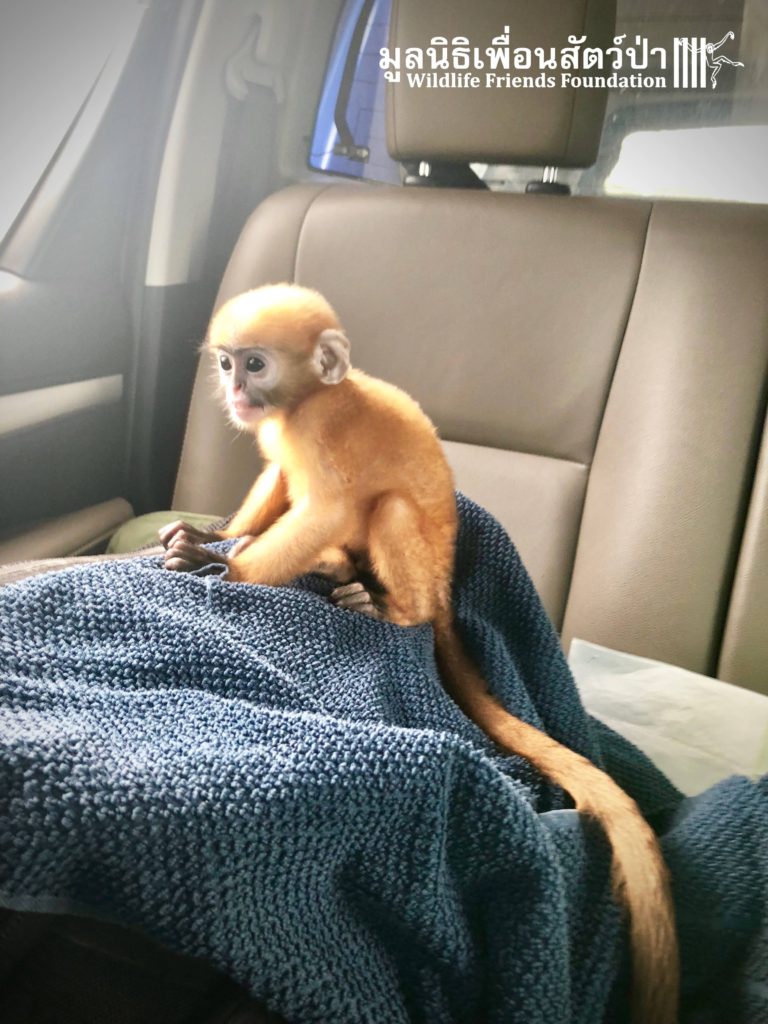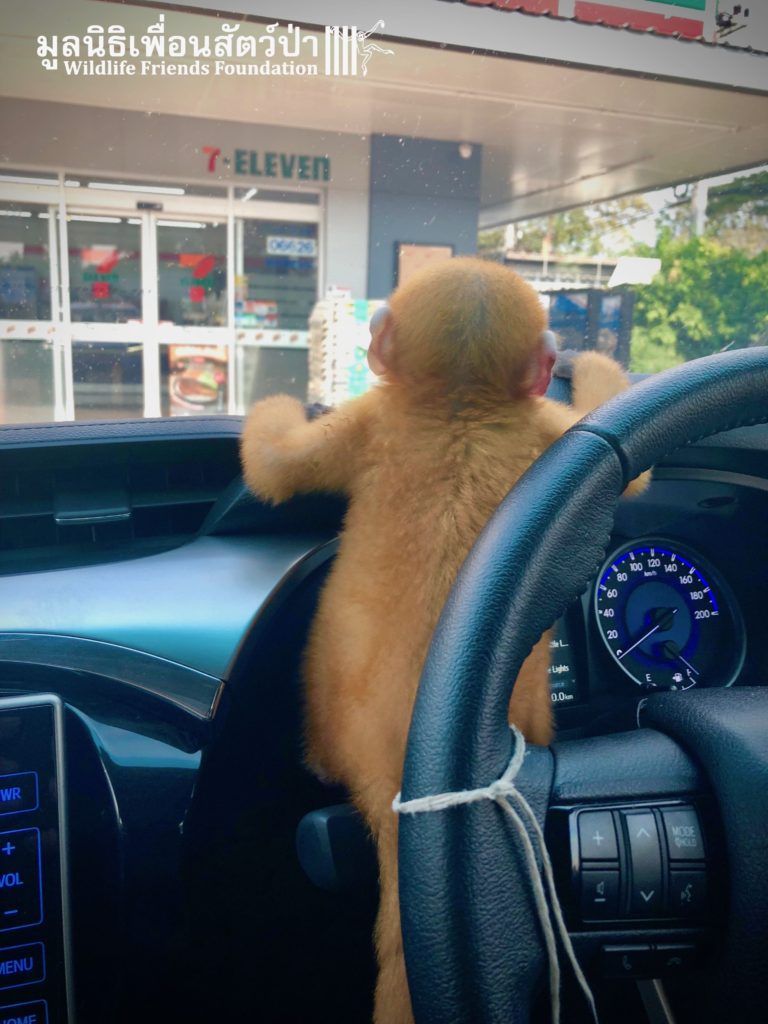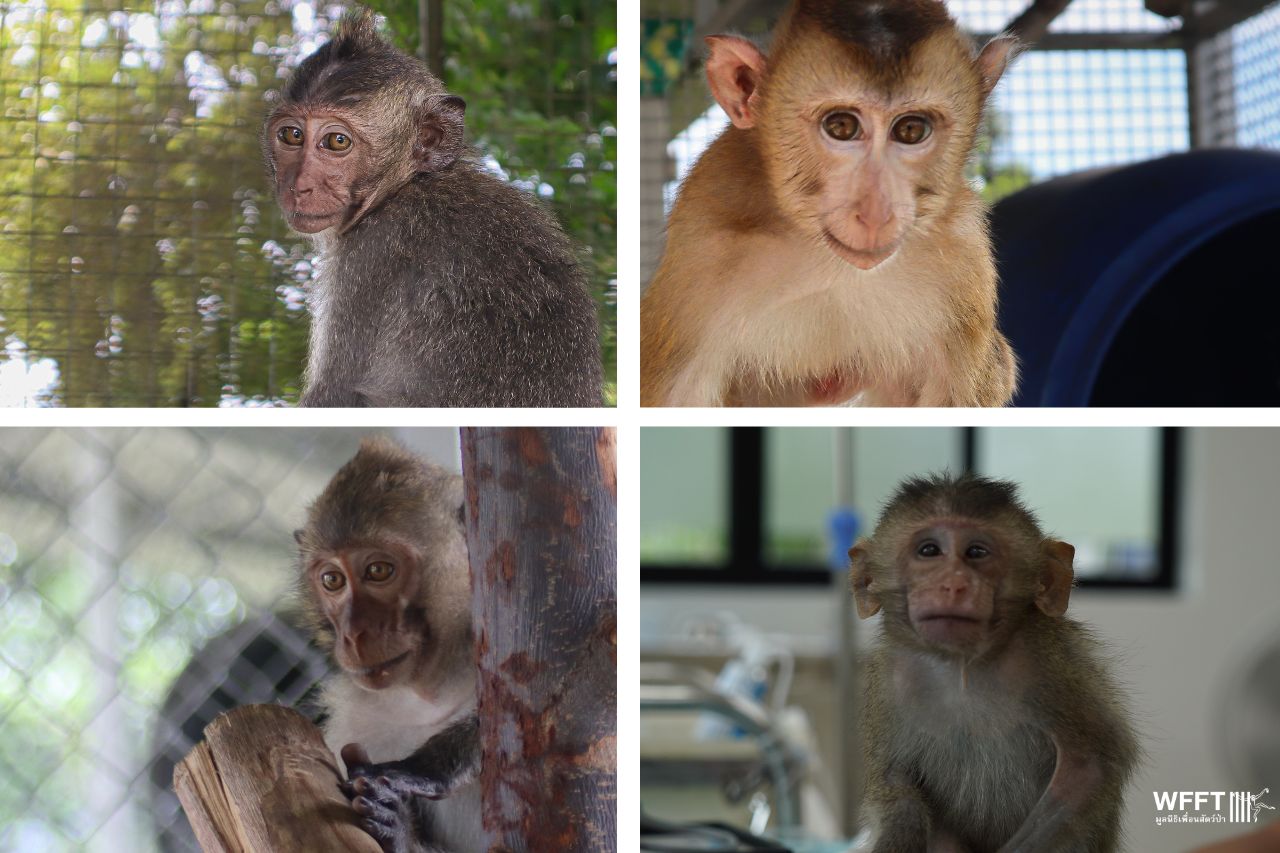The first side enclosures as part of our new coconut monkey project have been completed, and six rescued macaques have moved in.
Child’s Living Toy Rescued!
On Monday afternoon we received a call about a baby Dusky Langur that had been found on a rubber plantation in the south of Thailand. Despite the prospect of a 16-hour round trip drive the team wasted no time in setting off to rescue this little monkey.
Baby langurs are extremely cute and popular in the illegal wildlife trade. They are also extremely difficult to keep in captivity due to their specialist diet and high maintenance demands. Time is crucial with these delicate little animals and after advising what to feed, and crucially what not to feed, the team arranged a meeting time next morning in Kapong near Khao Sok.
A beautiful part of the country, unfortunately there was no time to enjoy the scenery and explore the wildlife in the area. At the arranged time in the local police district office the necessary paperwork was completed to legally transport this protected animal back to the hospital. Under the friendly watch of the police chief the formalities were completed and the monkey was legally handed over.
We don’t know how these farmers came into possession of this infant, or how he came to lose part of his right ear. They had clearly tried to do their best for it but their child thought it was her living toy and treated it like a rag doll. The mother quickly realised the demands of keeping this animal and the daughter was placated with some sweets. So, with the baby in our hands and the necessary paperwork the team drove the long road back to the hospital.
Stopping to feed Vincent (he has been named after the artist) every two hours they managed to get him back before dark. He was given a preliminary health check and will be looked after by the vet team over the coming weeks and months. We hope that he will be able to join Kanoon our other recently rescued orphan baby Langur and together they will be able to play and develop in as natural an environment as possible. We cannot replace their mothers or troops who all share in the rearing of these specialist leaf eating monkeys but hopefully they will be able to form part of a new troop with our other babies at the wildlife rescue centre.

